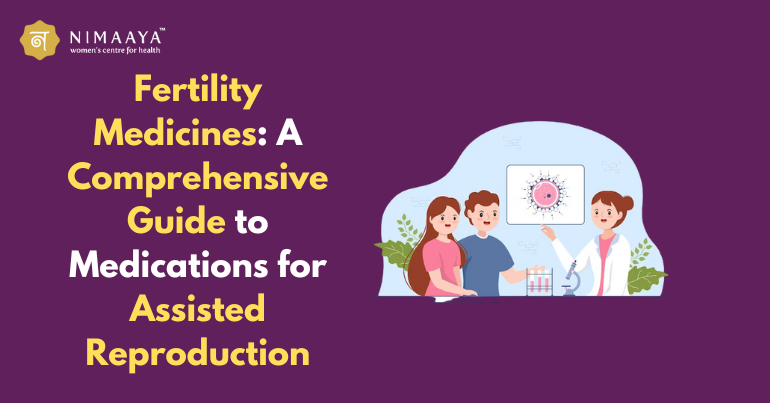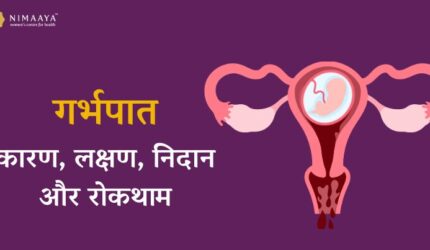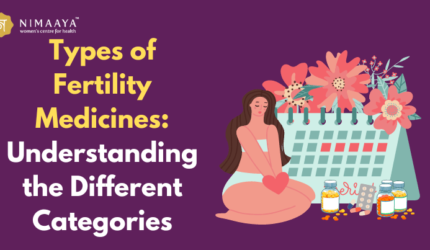Nowadays, fertility medicines have become a widespread solution for couples facing challenges while ovulating, especially common among women in their 30s. Every fertility center recommends consulting a doctor and diagnosing the issue with the help of blood work, imaging the test of the uterus, fallopian tubes, and ovulation tests.
Furthermore, women would also be asked to chart their menstrual cycle and monitor their body temperature.
But not to forget, injection to get pregnant faster comes along with side effects of fertility medicines that vary from one individual to another.
Also, it is a common misconception that infertility treatments are only for women, but they are equally important and play a major role in male infertility treatment.
We will discuss this later in the blog.
In addition, we will also get in-depth knowledge on what fertility medicines are, who is recommended to use them, and types of fertility medicines.
Let’s get started!
What are Fertility Medicines?
Fertility medicine or fertility drugs are mainly used by some women trying to get pregnant but can’t conceive naturally. It is beneficial when fertility issues are related to hormonal imbalance or PCOS. The most common fertility medicines used for the treatment of male and female infertility are CC (Clomiphene Citrate), hCG, FSH, hMG, and GnRH.
Who might be recommended to use fertility medicines?
- Diagnosed with PCOS
- Unpredictable, irregular cycle or ovulation
- Either gender is having hormonal problems
- Low sperm count
- The male is having certain infections or inflammations
Types of Fertility Medicines
1) CC (Clomiphene Citrate)
Clomid is the brand name for the medication clomiphene citrate. This oral pill helps stimulate your ovaries to release an egg, correcting irregular or inducing ovulation if you’re not ovulating.
The maturation of the follicles and the eggs within them triggers your body to produce more estrogen, ultimately producing higher-quality cervical muscles.
Potential side effects include:
- Nausea
- Bloating
- Headaches
- Dryness in the vaginal area, breast pain, and mood swings.
Administration of Clomid:
It is usually recommended to use dosage in tablet form, with an initial dosage of 50 mg daily. This administration typically begins after 5 consecutive days, commencing on specific days of the menstrual cycle, usually between 3-9 days.
This requires continuous administration as the Nimaaya IVF center will conduct blood tests and ultrasound examinations to track the hormone level and ovarian follicle development, ensuring the ovulation occurs as anticipated.
2) hCG (Human chorionic gonadotropin)
These shots use FSH and HMG injections to help trigger ovulation. A trigger shot is given when one or more follicles are just about to release eggs. The shot mimics your natural LH surge and it allows the follicle to release the eggs. In this type of fertility medicine, it is usually said that ovulation occurs 36 to 40 hours after the injection.
Side effects of fertility medicine are:
- Stomach pain or bloating
- Swelling
- Weight gain
- Sudden numbness
- Trouble in breathing
Administration of hCG
The timing of hCG administration should be carefully calculated to coincide with the expected release of eggs from the ovaries. The timing can vary depending on the specific fertility treatment and individual circumstances. It is administered as a trigger shot when the follicles in the ovaries are deemed mature and ready for ovulation.
The administration in hCG is done with two methods:
Intramuscular (IM) injection – This involves injecting hCG into muscles, especially the buttocks and thighs.
Subcutaneous (SC) injection – This involves injecting it just beneath the skin, often into the abdominal area.
Also Read: Understanding HCG Levels in Pregnancy
3) FSH (follicle-stimulating growth)
FSH is a hormone your pituitary gland makes and releases that plays a role in sexual development and reproduction. Also, it is said that it affects the function of ovaries and testicles. Hormonal support in assisted reproduction where shots act as natural FSH to stimulate the growth and maturation of your eggs.
It is usually recommended to start using FSH shots on either day 2 or 4 of your cycle.
Side effects of fertility medicine are:
- Mood swings and depression
- Fertility drug for twins
- Increased chances of miscarriage and premature delivery
- Swelling, breast tenderness, rashes
Administration of FSH:
FSH can be administered through subcutaneous or intramuscular injections. The choice of administration method depends on a specific fertility treatment plan and the IVF specialist’s recommendations and medical history.
The team conducts regular blood tests and examinations to ensure that the maturation of eggs is progressing as expected, allowing for precise timing in reproductive techniques such as IVF or IUI.
4) hMG (Human Menopausal gonadotropins)
hMG is a medication used in fertility treatment. It refers to a mixture of two gonadotropins purified from the urine of postmenopausal women and it’s a combination of FSH and LH. The crucial role of hormones is the regulation of the menstrual cycle and the development of eggs in women.
The assessment ensures that the development is proceeding as expected, enabling precise timing for IVF or IUI.
hMG is used to stimulate the ovaries in women who are undergoing not only IVF infertility treatment but also IUI. This helps you to increase the number of eggs a woman’s ovaries produce and improve the chances of pregnancy.
In the case of fertility medicines for male infertility, the hMG is used to stimulate the tests to produce the sperm.
At Nimaaya, we make sure that hMG is carefully monitored to prevent overstimulation of ovaries and ensure an effective treatment. It is usually suggested to use this plan of infertility that is suggested according to how the individual body responds to such type of treatment and the medical history.
Side effects of fertility medicines:
It is said that the experience of a person may differ from each other when it comes to experiencing the side effects of fertility medicines. Let’s explore a few of them:
- Injection site reactions such as redness, swelling, or pain when it is injected
- Increases the chances of multiple pregnancies
- Irregularities in the menstrual cycle
- Abdominal discomfort or pain
Administration of hMG:
The administration of hMG comes into play when an individual is facing fertility challenges such as where ovaries require stimulation to produce eggs. Through its administration, it plays a vital role in enhancing the number of eggs and optimizing the chances of pregnancy.
The fertility medicine for females is customized according to individual requirements, where appropriate hMG dosage and treatment schedule will be aligned to enhance the chances of pregnancy.
5) GnRH
Gonadotropin-releasing hormone(GnRH) is used to prevent the premature release of eggs. It helps the female infertility treatment bring regulation in the reproductive system by influencing the release of hormones from the pituitary gland.
GnRH travels from the hypothalamus to the pituitary gland, which is another gland in the brain. In response to GnRH, the pituitary gland releases two hormones:
LH (Luteinizing hormone)
It is responsible for stimulating the ovaries in women to produce sex hormones and to trigger ovulation in women.
FSH (follicle-stimulating hormone)
FSH stimulates the development of eggs in women’s ovaries and sperm in men’s testes.
The side effects of fertility medicines are:
- Nausea and headaches
- Abdominal pain and bloating
- Slight chances of multiple births
Administration of GnRH:
The administration of GnRH comes into play when hormonal imbalances or specific medical conditions affect the natural release of GnRH and its hormones.
GnRH is employed to restore the delicate hormonal that will allow for more controlled fertility treatment or symptom management.
Fertility medicine can be administered in various forms including injections, nasal sprays, or even implants.
Over-the-counter fertility treatments
Couples facing fertility problems might consider using over-the-counter fertility pills as an alternative to getting pregnant instead of opting for fertility medicines alternatives such as hMG, FSH, hCG, and many more.
This is preferred because of cost-effectiveness, and the ability to buy them helps them keep the anonymity that individuals prefer. There are a few options while considering over-the-counter fertility treatments:
Fertility blends
The most common non-prescription fertility drugs available generally blend a combination of fertility vitamins, herbs, and minerals.
Prenatal vitamins
The fertility treatment is helpful to you only when there is a specific vitamin deficiency preventing you from getting pregnant.
Herb supplements
These products claim to be made from 100% natural herbs, with varying effects on fertility enhancement. They may aid in stimulating ovaries or regulating hormones.
Clomid
Clomid, containing the active ingredient clomiphene, is a trendy over-the-counter option readily available at the drugstore. This drug helps regulate ovulation and may enhance the chances of releasing an egg during an ovulatory cycle, thereby improving the likelihood of conception.
Key Takeaways
To sum up, fertility medicines stand as the best alternative for accomplishing the dream of conceiving a baby. There are various types of fertility medicine, catering to the unique needs of couples, including same-sex couples, depending on their fertility problems and medical histories.
At Nimaaya IVF Center, we believe that every individual is different and as such we follow the consultation, guidance, and suggestion approach. This ensures that the treatment you opt for doesn’t involve complications or is faced with no present or future complications.
Our IVF specialist team, Dr. Pooja Nadkarni Singh, Dr. Yuvrajsingh Jadega, and Dr. Prabhakar Singh, has been in the field for more than a decade and has been dedicated to introducing the latest technology and equipment to assist couples in India to conceive a baby without any complications.
Consult today!



